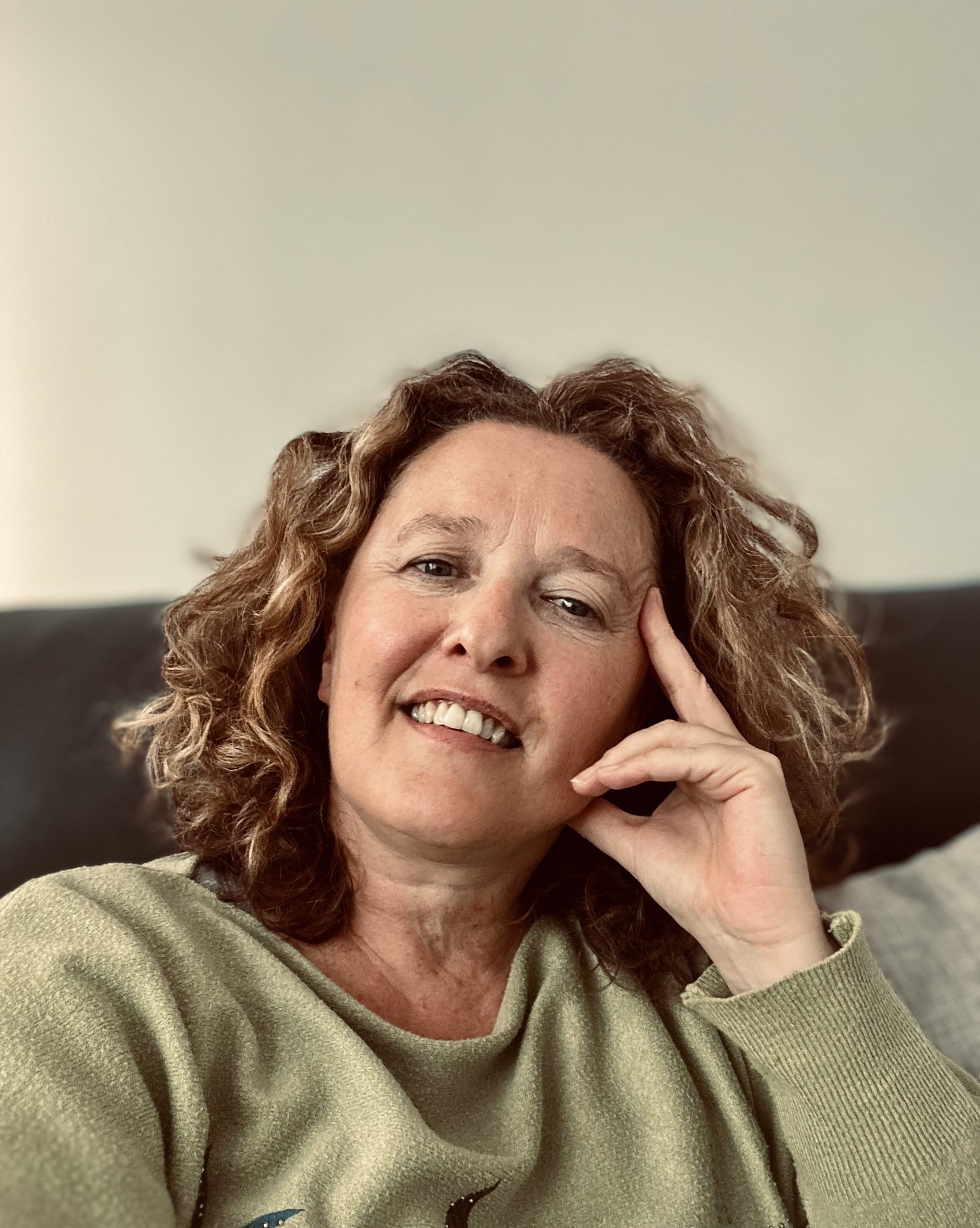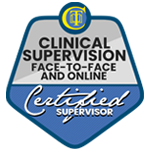Welcome
My name is Sarah and I am a person centred counsellor based in Worthing, West Sussex. I work therapeutically as a face to face counsellor and I also offer online counselling via webcam.
There are times in our lives when it is difficult to cope. We may be dealing with a specific life changing event, struggling in our relationships, or experiencing a challenging work environment. When we are overwhelmed or feeling out of control, our perspective and our sense of self can fall out of balance. Talking to a counsellor, and working through difficult feelings, is a positive step towards rebalancing our lives, and finding perspective again.
I am a member of the National Counselling & Psychotherapy Society, and I adhere to the code of conduct of my professional body. This means that I protect client confidentiality and I am very mindful of their safety. With a deep respect for every aspect of the client's experience; and a commitment to creating a warm, empathic and supportive environment.


Experience
I have 13 years experience of working therapeutically with clients. As a specialist trauma counsellor I have supported clients who were dealing with anxiety, addiction, depression, domestic violence, panic attacks, PTSD, sexual abuse, sexuality, social anxiety, trauma.
I also work with autism, as individuals on the autistic spectrum may have feelings of isolation due to a struggle with social understanding or sensory overload, they may have also experienced some form of exclusion in their lives, perhaps at work or school. This can lead to depression, anxiety and sometimes self harm. I therefore offer counselling to any one dealing with this in their lives; and I include parents or carers of young children who are neurodivergent and may need support or a space to talk through their concerns. If you follow the link autism you will find a list of organisations dedicated to this area.
My Approach
My approach to therapy is a person centred one, this way of working is non judgmental and empathic, where the counsellor is real and genuine in the relationship. Carl Rogers who is the father of person centred therapy believed that under the right therapeutic conditions a person can work towards, and reach their fullest potential.
How I Work
The conditions in the person centred model are empathy, unconditional positive regard (being non judgmental), and congruence (being genuine). Person centred counselling is essentially client led, which means the therapist is along side, holding the client emotionally; as they explore their feelings and the issues that may be getting in the way of progress towards their desired dreams and achievements. This is because of the belief that everyone has an innate motivation to self actualise (realise their own maximum potential and possibility).
Supportive Environment
I am a trained person centred practitioner and I use the core conditions of this approach (empathy, unconditional positive regard, and congruence) to shape the therapeutic experience for the client.
In this environment, which is warm and supportive, I am committed to helping clients confront and challenge any blocks they may have in their emotional life.
What Issues Can Counselling Help With?
My counselling approach can help with:
Anxiety
Autism
Addiction
ADHD
Depression
Domestic Violence
Dyslexia
Low Self Esteem
Menopause
Panic Attacks
PTSD
Sexual Abuse
Sexuality
Social Anxiety
Trauma

Counselling
I work face to face with adult (18+) individual clients (I do not offer couples therapy) on an open ended basis or for an agreed period, and this can be discussed before the onset of counselling. A minimum of six sessions is recommended to give clients the opportunity to explore the issues they bring to therapy; and then decide if they want to extend the work. If you are looking for face to face counselling then you can either click here to email me or give me a call; all sessions are for sixty minutes.
Therapy can also be conducted online via a video platform. Please do contact me with any questions you might have about online counselling.
Online counselling is not recommended for people in crisis, other means of support are available if you are struggling right now.


Supervision
I offer supervision to qualified and trainee counsellors and psychotherapists who are seeking help with reflection on their practice, and support and encouragement with the development of their skills, knowledge and awareness; ethically, personally and professionally. Supervision is offered online, and I have a limited number of spaces for face to face meetings.
I have been trained using the seven eyed supervison model (developed by Peter Hawkins & Robert Shohet in 1985). This model intergrates the relational and systemic features of supervision.
Focusing on the relationship between client, therapist and supervisor, whilst observing and processing the transaction between each relationship, and their context within the wider system.
The seven eyed model of supervision compliments the person centred approach to therapy. Supervision using the seven eyed model can help anyone who needs psychological support with their work - counsellors, psychotherapists, coaches, mentors, social workers, teachers, et cetera.
You are welcome to email me with any questions regarding availability, and to book an initial discussion around your supervision needs
"Humans' ability to grow is infinite when they feel safe"
Carl Rogers
"Loneliness does not come from having no people around you, but from being unable to communicate the things that seem important to you"
Carl Jung
"People are just as wonderful as sunsets if I can let them be...When I look at a sunset I don't find myself saying, "soften the orange a bit on the right hand corner"...I don't try to control a sunset. I watch with awe as it unfolds."
Carl Rogers

Fees
Counselling Fees
Face to Face Sessions £60
Online Sessions £60
Initial and on going emails to enquire about the service are not charged for.
Payment for counselling is taken in advance.
Cancellation Policy - If you need to cancel your appointment, I ask that you give 24 hours notice, or the full fee will be incurred.
Clinical Supervision Fees
1.5 Hours £70
1 Hour £50
Qualifications
- Advanced Certificate, Clinical Supervision Including Online & Telephone Working
- Diploma, Therapeutic Counselling
- Certificate, Counselling Studies (Plymouth University)
- Certificate, Counselling & Counselling Skills (Birkbeck)
- Certificate, Cornwall Rape and Sexual Abuse Centre
- Certificate, OCST Online Counselling Skills
- BA Hons, Humanities (University of West London)
- Member of the National Counselling & Psychotherapy Society MNCPS (Acc.)
- Fully Insured
- Registered Data Controller
- Enhanced DBS

Get in Touch
If you would like to contact me to enquire about the counselling I can offer you, or to request an initial brief consultation, please do so using the contact form.
You can also contact me on 07877 870775 (please leave a message if I am unavailable).
Office hours are Mon-Fri 9-5.
Resources
Autism & Dyslexia
Some useful links for autism:-
- Ambitious About Autism
- Jessica Kingsley Publishers (independent publishers of books on autism)
- Education for Everybody (special needs magazine)
- Wrong Planet (online resource and community for autism and Asperger's)
- National Autistic Society
- PDA Society
- London Autism Group Charity
Some useful links for dyslexia:-
- Dyslexia Action
- Helen Arkell Dyslexia Charity
- British Dyslexia Association
- TTRS (touch-type read and spell, online multi sensory literacy and keyboard course designed for children and adults with dyslexia)
Other:-
Trauma
Trauma can be experienced by any one, at any age, at any time. It can happen because we may have gone through a scary event, or due to a succession of experiences where we felt unsafe and threatened. The effects of trauma can be long term, and can cause sleep problems, relationship problems, and lead to drug or alcohol abuse.
There may be intense feelings of anxiety, panic attacks and/or flashbacks. This can be extremely frightening, especially if someone feels unheard, or misunderstood. Talking to a counsellor can help with working through the process of the traumatic experience. It is a safe space, where the client can find understanding and support. Having a witness to the trauma is a very powerful therapeutic experience for clients, where their journey is held emotionally, free from fear of judgement.
You may have experienced an event where you felt: -
Scared
Ashamed
Deserted
Helpless
Groundless
You may have witnessed a traumatic event, be directly affected, or living in a threatening environment. Below are some resources that may be of help and support: -
PTSD
When we have experienced trauma our brains are wired to respond to the threat by fighting, fleeing, or freezing. In fact these responses can be seen in animals who are under threat, and are a way of surviving. For us, these responses harken back to a more primitive existence, where we lived in a world with ever present danger.
Neurologically speaking the amygdala, which is located in the temporal lobe of the brain helps to trigger the 'fight, flight, freeze' response, and takes over from our more logical 'thinking' brain, when our sense of survival is threatened.
If the threat is ever present then a person may form a complex attachment to their aggressor, where they try to placate or sooth. This could be an attempt to distill or lessen the attacks that are coming their way, and this response is called 'fawning'. With this response comes confusion and shame because instead of fleeing the situation, the instinct has been to submit and deny the abuse, in favour of pleasing the attacker.
Naturally our behaviour will be affected by this, and we may find ourselves stuck in an endless loop of fight, flight, freeze and fawn responses. Where others may react to minor threats relatively calmly, a person with PTSD will have a heightened awareness and almost expect a threat, where there may be none at all. This is a difficult process to work though, and requires understanding, patience, and a lack of judgement from the therapist. Trauma responses may be experienced in the following ways: -
Fight
Anger outbursts
Controlling
Explosive behaviour
Flight
Workaholic
Panic, anxiety, OCD
Perfectionist
Freeze
Difficulty making decisions
Stuck
Numb
Fawn
People pleasing
Lack of identity
Trouble with setting boundaries
Counselling can help to accept these responses as instinctive, human, and part of our survival. Becoming more aware of why we have responded thus is crucial in the journey towards acceptance and healing.
© Sarah Williams powered by WebHealer
Privacy Notice
Information collected via this website, for example email addresses, are not passed on to a third party. An email address, or phone number obtained by myself through this website are used for communication purposes only.
Enquiries sent through the contact form are deleted by the host (WebHealer) once they are delivered to the therapists email.
You have a right to contact the Information Commissioners Office with a complaint if you believe your data protection has been compromised.
This Privacy Notice outlines how I, as a counsellor/clinical supervisor, handle and protect your personal information in accordance with applicable data protection laws. Your privacy is of utmost importance to me, and I am committed to ensuring the confidentiality and security of the information you share with me.
1. Data Controller:
The data controller responsible for the processing of your personal information is Sarah Williams.
2. Information I Collect:
I collect and process various types of personal information, including but not limited to:
- Contact details (name, address, phone number, email)
- Personal background and history
- Information shared during counselling/supervision sessions
3. Purpose of Processing:
I process your personal information for the following purposes:
- Providing counselling/supervision services
- Maintaining accurate records of sessions
- Contacting you regarding appointments or relevant information
- Ensuring your safety and the safety of others
4. Legal Basis for Processing:
The processing of your personal information is based on your explicit consent, the necessity for the performance of a contract, or compliance with legal obligations.
5. Data Sharing:
Your personal information is treated with the utmost confidentiality. It will not be disclosed to third parties without your explicit consent, except in situations where I am legally obligated to do so or if there is a risk of harm to yourself or others.
6. Data Security:
I implement appropriate technical measures to ensure the security and confidentiality of your personal information.
7. Retention Period:
I retain your personal information for a period necessary to fulfil the purposes outlined in this notice, unless a longer retention period is required by law.
8. Your Rights:
You have the right to:
- Access your personal information
- Rectify inaccuracies in your data
- Withdraw consent
- Request erasure of your data
- Object to processing
- Lodge a complaint with the relevant supervisory authority



